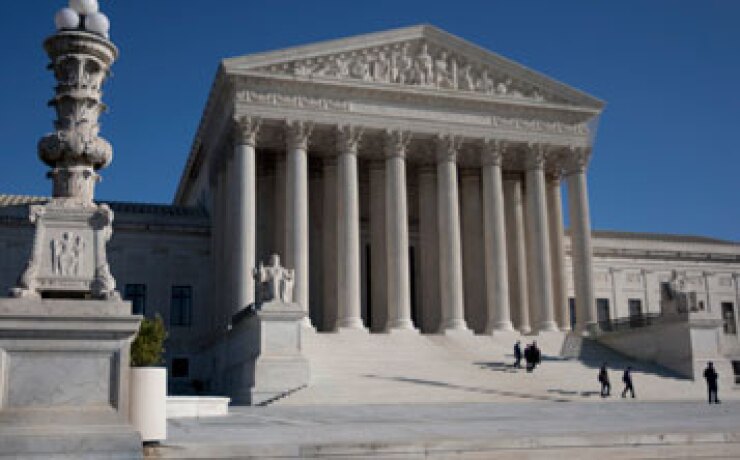The Supreme Court agreed Friday to hear a case challenging the appointment of administrative law judges, which could affect an appeals court ruling on the constitutionality of the Consumer Financial Protection Bureau.
The Supreme Court case, Lucia v. Securities and Exchange Commission, was cited by the U.S. Court of Appeals for the D.C. Circuit in February when it
The appeals court is expected to rule any day in the closely watched case, PHH v. CFPB. The court could decide to hold off on a ruling while the Supreme Court determines the Lucia case, experts said.

If the Supreme Court concludes that the method of choosing administrative law judges is unlawful, it has the potential to throw out a judgment against PHH.
During oral arguments in May, the appeals court justices did not spend much time discussing what would happen to the PHH case if the judge who initially decided the case was deemed to be an "inferior office" and not an "employee" of the CFPB.
The case dates to 2014, when Cameron Elliot, an administrative law judge who worked for the SEC, recommended that PHH disgorge more than $6 million in damages for taking illegal kickbacks in violation of the Real Estate Settlement Procedures Act.
In 2015, then-CFPB Director Richard Cordray overruled that decision and ordered PHH to pay $109 million. An en banc panel of the D.C. Circuit ruled that the CFPB was unconstitutional, but that ruling was vacated when the full court agreed to hear the CFPB's appeal.





